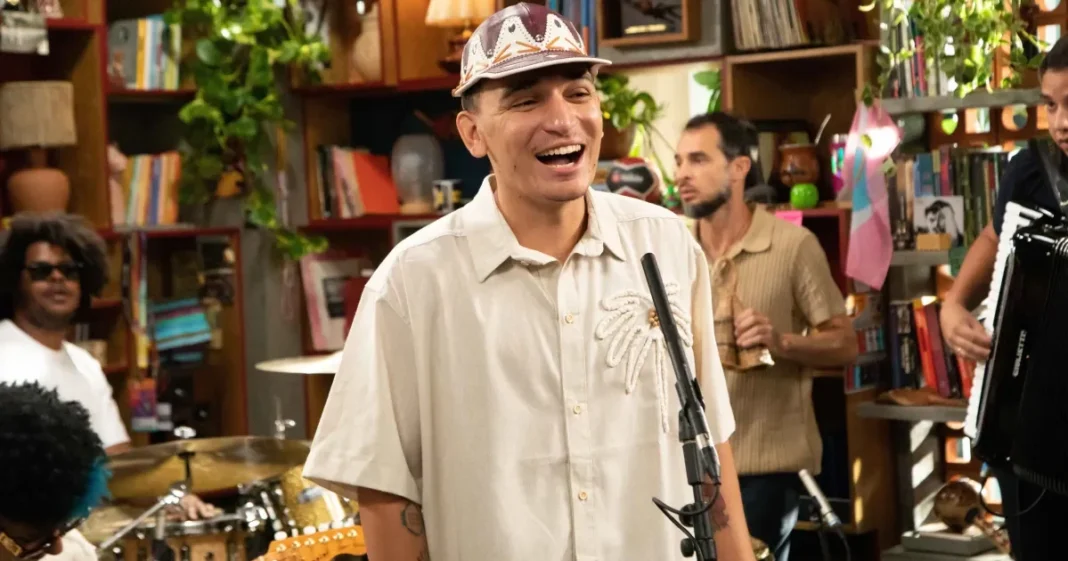NPR’s iconic Tiny Desk Concerts, the small stage with big impact, has finally landed in Brazil — its first-ever Latin American edition. And it’s not just another franchise. Tiny Desk Brasil signals something larger: a long-overdue recognition of the country’s unmatched musical depth and its global potential.
For over 15 years, Tiny Desk has redefined live performance by turning simplicity into emotional power — no arena lights, no post-production gloss, just artists, instruments, and truth. Those few square meters behind Bob Boilen’s desk in Washington, D.C. became a launching pad for both rising and legendary acts. The format’s intimacy and storytelling made it a cultural phenomenon, attracting millions of monthly viewers around the world.
So why Brazil? The answer lies in both numbers and soul.
Why Brazil Was the Natural Choice
Brazil isn’t just Latin America’s largest music market — it’s one of the world’s most active on streaming platforms. Samba, bossa nova, funk, MPB, and tropicália are not just genres; they’re cultural movements that have shaped global soundscapes for decades. According to NPR’s Executive Producer Suraya Mohamed, Brazilian music “continues to be a dominant force that has impact well beyond its borders.”
Beyond statistics, there’s audience loyalty. Brazil is Tiny Desk’s second-largest international audience, and yet, until now, local artists only appeared sporadically — from Seu Jorge’s samba storytelling to Liniker’s soulful R&B, Luciana Souza’s jazz precision, and Milton Nascimento’s legendary duet with Esperanza Spalding. These performances revealed the appetite for Brazilian music — but they were one-offs.
Tiny Desk Brasil, produced by Anonymous Content Brazil in partnership with Google Brazil and NPR Music, changes that. It gives Brazilian artists a consistent global platform, recorded in São Paulo with the same stripped-down aesthetic and storytelling approach that made the original series a touchstone.
A New Global Bridge for Brazilian Music
If done right, Tiny Desk Brasil could be more than a show — it could be a bridge. For indie artists who rarely reach global stages, this is a gateway to visibility beyond Spotify playlists or local circuits. The format’s signature intimacy allows foreign audiences to connect with artists as people first, transcending the language barrier through emotion and narrative.
It also comes at a time when Portuguese-language music is still underrepresented globally. While reggaeton and música mexicana dominate international charts, Brazilian pop stars like Luísa Sonza and Ludmilla still face challenges to break through. Tiny Desk Brasil has the potential to flip that script — bringing Brazil’s musical authenticity to the forefront of global consciousness.
The Debut: João Gomes Opens the Desk
The series premiered on October 7 with João Gomes, the 22-year-old sensation from Pernambuco who has become the voice of a new Brazilian generation. Blending forró, piseiro, and heartfelt lyrics, João embodies everything Tiny Desk stands for: vulnerability and connection.
His debut performance — filmed at Google’s São Paulo offices — was more than symbolic. It marked a milestone for regional music in a country where pop and funk often dominate the charts. “I came here to make history,” João told fans outside the studio, and judging by the reaction online, he did.
His performance is now streaming on Tiny Desk Brasil’s official YouTube channel, with new episodes dropping every week.
A Landmark for Latin America
Tiny Desk Brasil follows the success of the Japan and Korea editions, becoming the third international franchise. Ten episodes are confirmed for its first year, curated by Anonymous Content Brazil and Amabis, with the same attention to sound, storytelling, and artistic integrity that built Tiny Desk’s reputation.
For Brazil, it’s a chance to showcase what insiders already know: this country doesn’t just make music — it lives it. And for the world, it’s an invitation to listen closer.
- Supports 164 Languages Translation: These translator earbuds real time use advanced AI translation technology to support…
- AI Chat Mode & Audio/Video Call Translation: Equipped with a multilingual AI assistant, these bluetooth translation head…
- 5 Translation Modes: These language translator ear buds support five versatile modes: Free Talk, Headphone+Phone, Audio/…




